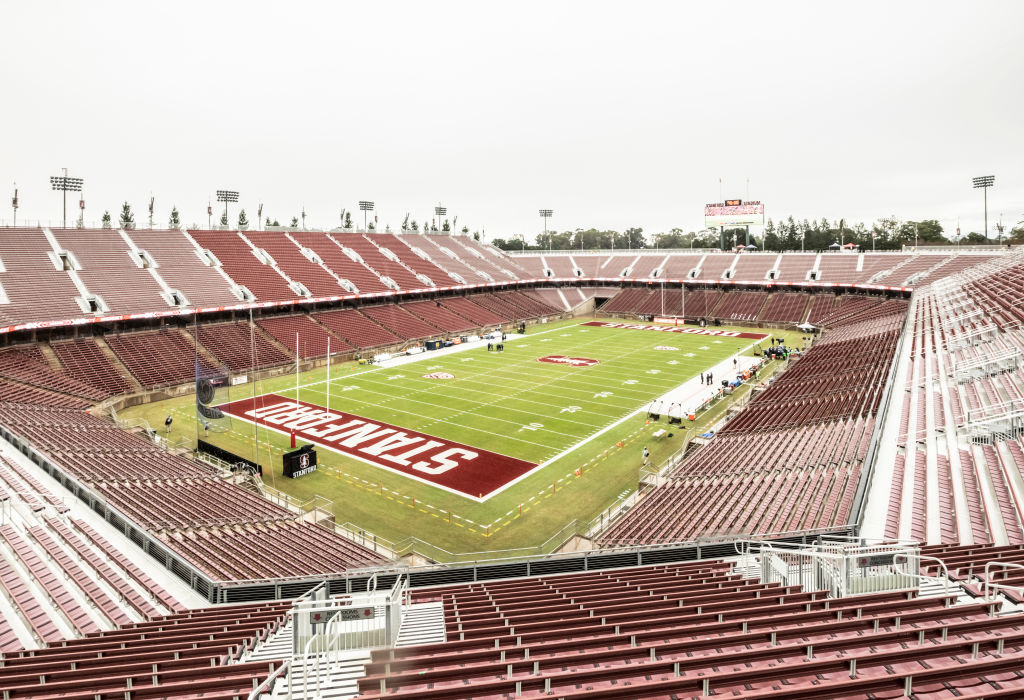NCAA
Will the NCAA Cancel the 2020 College Football Season?

As the sports world misses out on the NCAA Tournament’s Sweet 16 games this weekend, the NCAA is looking to the future and considering schedule changes to the upcoming 2020 college football season. Unfortunately, cancellation of the season has become a serious topic of discussion.
NCAA cancels spring sports
It’s hard to believe but it was just two weeks ago, the NCAA announced it was canceling the Division I men’s and women’s 2020 basketball tournaments. The NCAA didn’t stop there and canceled all remaining winter and spring championships due to the ever-evolving COVID-19 crisis.
It was the first time in the NCAA Tournament’s 81-year history the event had been canceled. What surprised many was the NCAA’s decision also to cancel spring sports. Instead of postponing sports such as college baseball, women’s college softball, and college wrestling, the NCAA’s decision to cancel events scheduled to conclude months down the line indicated the organization’s concern this was a long-term problem.
NCAA President Mark Emmert said as much in his statement.
“This decision is based on the evolving COVID-19 public health threat, our ability to ensure the events do not contribute to the spread of the pandemic, and the impracticality of hosting such events at any time during this academic year given ongoing decisions by other entities.”
Emmert was clear in saying the cancellations were for sports in this academic year. Nothing was said about sports starting up in the fall semester.
Could 2020 college football season could be canceled?
The college football season has already been affected by the pandemic as teams canceled all activities, including spring practice and spring games. All players and coaching staff left campuses and returned home with no real indication of when they might return.
“Coaches really have no clue,” North Carolina head coach Mack Brown said of the 2020 season on a recent conference call. “There is a fear of ‘would we have a season?’ ‘Would we have a partial season?’ ‘What does a partial season mean?’ There is a great concern because of the remedy that comes in with football.”
Brown acknowledged he’s not an expert on the matter, and at this point, no one really knows with any degree of certainty what the situation will look like weeks down the road much less months when the football season is scheduled to resume.
“The biggest problem is you’re not sure when it ends, and we can’t get those answers at this point,” Brown said.
The massive impact of canceling the 2020 season

If the NCAA canceled the 2020 football season, all universities would be dramatically affected. That’s because many universities depend on revenue from football to help finance other sports. In general, 80 percent of FBS athletic budgets are made up of football revenue.
As a business, college football accounted for $6.5 billion in revenue during the 2018-19 academic year or an average of $51 million per school, according to Andy Schwarz, a partner and consulting expert with California-based law firm OSKR.
University of Florida Athletic Director Scott Stricklin said canceling the season would be devastating to the entire college sports landscape.
“From a financial standpoint, if we’re not playing football games in the fall, it will shake the foundation of college athletics. As everyone knows, football pays for the enterprise to go forward.”
All coaches and athletic directors understand the gravity of the situation and appear to be taking a “one-day-at-a-time” approach. And that’s probably the only rational approach to take at this point with so much uncertainty. After all, no one would have told you a month ago that the NCAA Tournament would have been canceled for the first time in its history.











